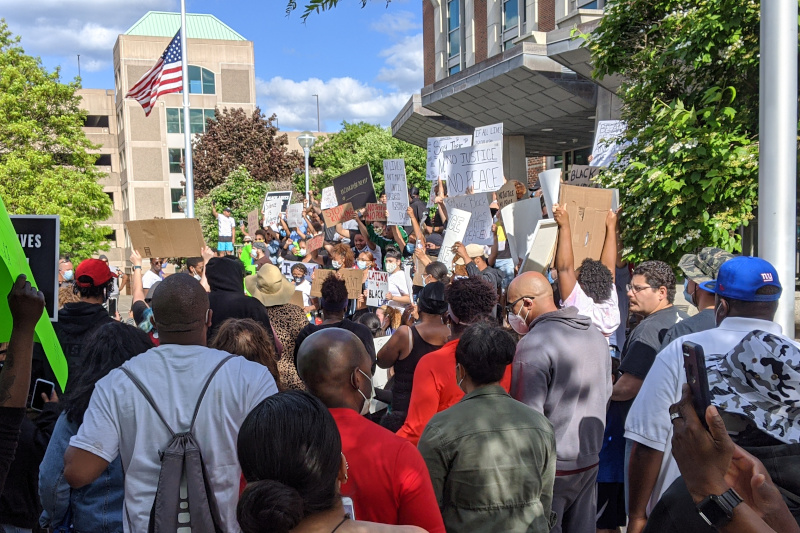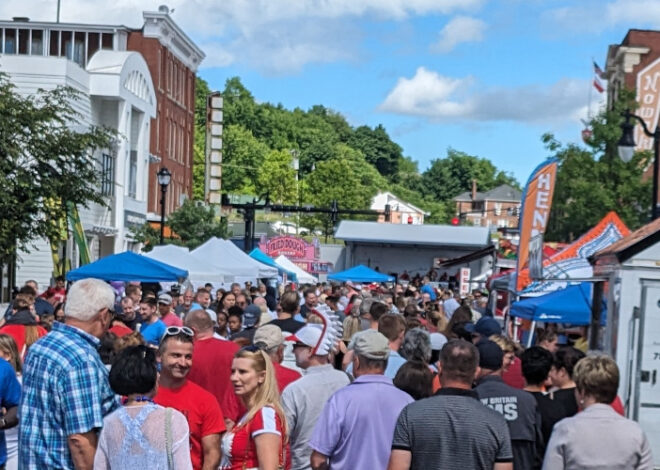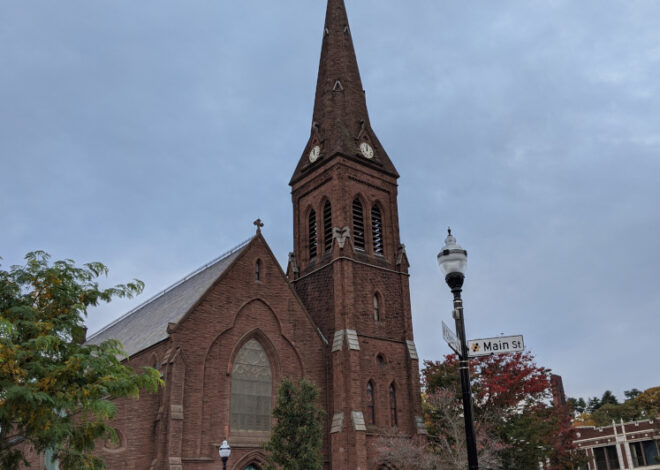One year after the murder of George Floyd by a Minneapolis police officer set off nationwide and local protests, people are reflecting on progress – and continuing challenges.
For Black Americans and other communities of color, the murder of Floyd on May 25, 2020, while bystanders plead with police officers for his life, was a particularly brazen example of the unjust realities of life in America under systemic racism. It was a brazen example of a long pattern of racist systemic violence that sparked protests nationwide, and anti-racism organizing in New Britain.
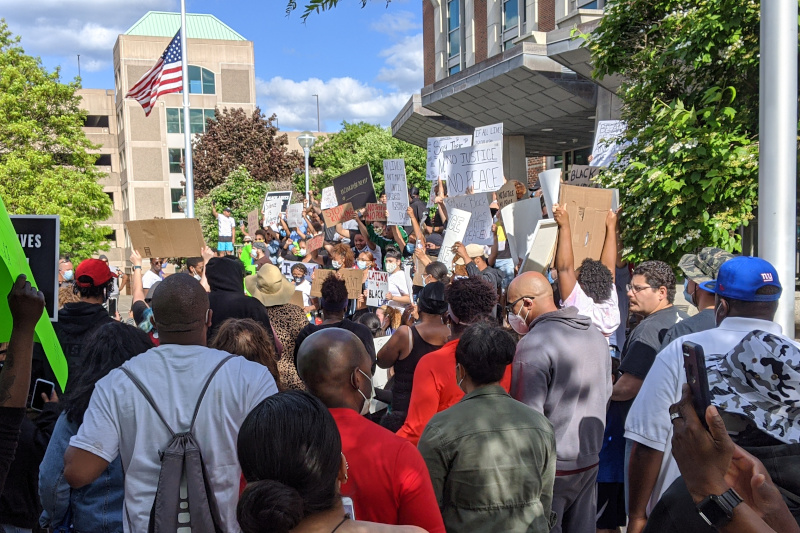
Democratic Mayoral candidate Veronica T. DeLandro commented today that, “on May 25, 2020, the murder of George Floyd ignited a global movement that forever changed our lives.”
“We all know where we were today, just one year ago,” said Democratic Mayoral candidate, Rep. Bobby Sanchez (D-25), today. “George Floyd lost his life to Derek Chauvin in a moment that spurred a national conversation about police brutality and accountability, equality, equity, diversity, and inclusion.”
“Today we breathe for George,” said DeLandro, “witnessing the social impact that continues to heighten as we work to ensure critical measures of accountability.”
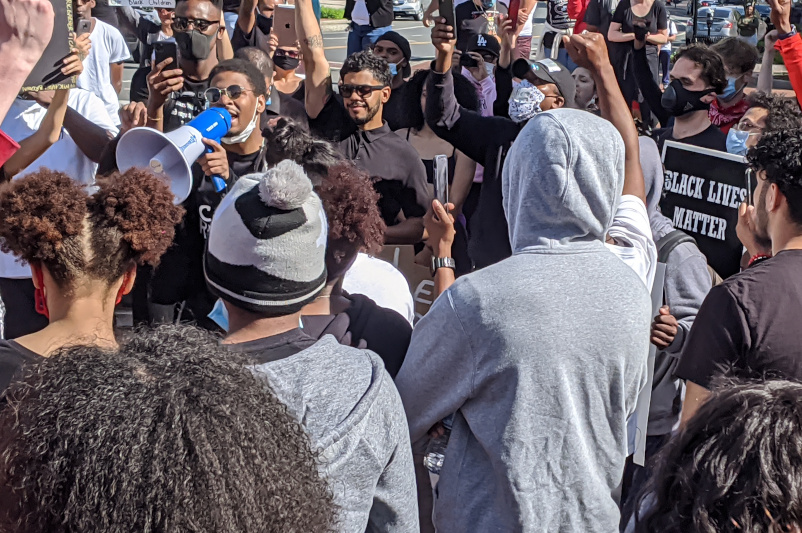
A movement came to life in New Britain as, on May 31, 2020, perhaps two thousand people marched through the streets of New Britain demanding change in society to end racist inequality and violence. Bishop Rha-Sheen Brown called the moment, “a new revolution.” That protest, one of many nationwide and worldwide, lead to a summer of protest in New Britain, the formation of the New Britain Racial Justice Coalition, which was lead by Alicia Hernandez Strong, until she announced her campaign for Mayor, and broad calls for proactive change in the city.
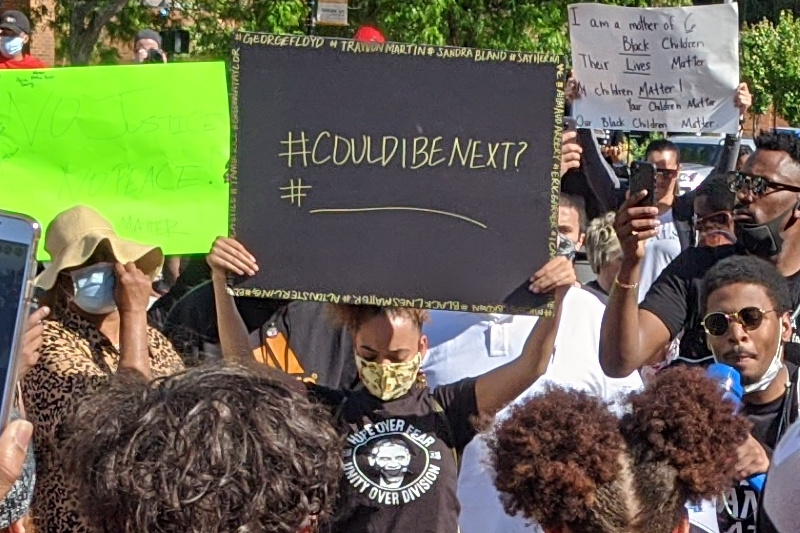
The movement for change swiftly began turning toward practical demands for change in the city, state and nation.
On the state level, activists demanded, and the state legislature and Governor approved, sweeping new police accountability legislation. But the change was not unanimous. Democratic legislators, Sen. Rick Lopes (D-6), then a state representative, Rep. Bobby Sanchez and Rep. Peter Tercyak (D-26) voted in favor of the legislation, while Republicans, Rep. William Petit (R-22) and then Sen. Gennaro Bizzarro (R-6) voted in opposition.
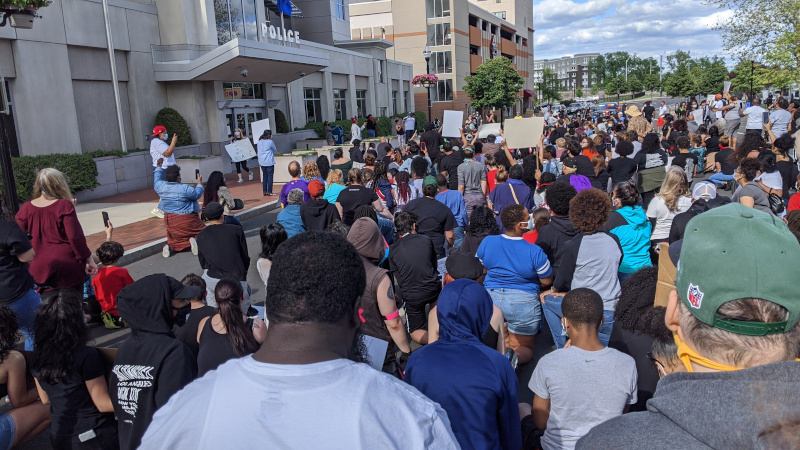
At the city level, activists demanded the creation of a strong community review board for the city police, chosen from the community and having subpoena and other powers. While City Council Democrats supported a strong police review board, city Council Republicans defeated the proposal in a committee.
Similarly, a proposal by activists to remove the city’s Christopher Columbus statute from a place of honor on Main Street was supported by Council Democrats, but was vetoed by Republican Mayor Erin Stewart – a veto that was supported by Stewart’s Republican majority on the Council.
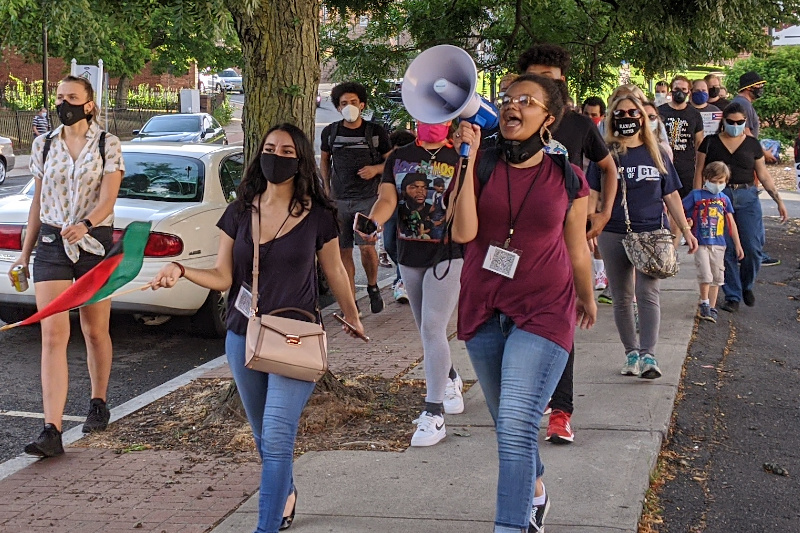
Rep. Sanchez pointedly asked, “has equity really been at the forefront of our decision-making here in New Britain?” adding that, “Our Mayor for the past five years has not funded our Consolidated School District, and as a result, we are the most underperforming school district in the State. We are dead last.”
But Rep. Sanchez and DeLandro said, today, that they were looked past the obstacles of the present and forward to the possibilities for a better future.
“By directly investing in our schools,” Rep. Sanchez said, “property values go up, New Britain becomes a more attractive place to live, and we can capitalize on our proximity to the Capitol as a phenomenal place to start your family and raise your kids.”
DeLandro commented that,
George Floyd should be here. Let this be the catalyst to influence systemic transformation and fulfill the work that still needs to get done. Today is a day to reflect and honor the life of George Floyd, the legacy that lives on and our commitment to police reform, social justice, and racial equity.

